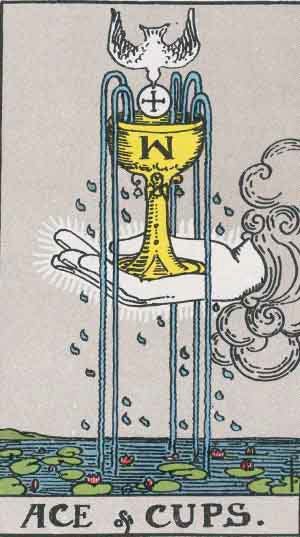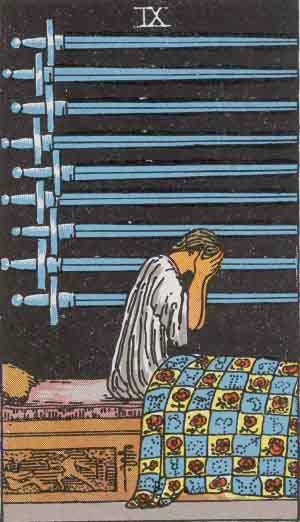[🌚 Offering] Killing Me Softly With Her Tarot Reading
When the holidays make you feel funky, how can tarot help?
This is Five and Nine, a podcast and newsletter at the crossroads of magic, work and economic justice. We are currently between seasons. You can catch up on Apple, Spotify, Google and Instagram.
This podcast is always free, but paid subscribers have access to special content, including how-to's, journaling exercises, tarot suggestions and more.
Recently, I drew an Ace of Cups upside down for myself during a tarot circle.
“It’s like the water’s flowing out of your cup,” my tarot partner told me. “You have to let it all out.”
I looked at the card. I looked at the sky. I started crying.
It’s been waterworks for me lately when I do tarot. I’ve been going through a particularly rocky time in my life, with a lot of change, a lot of loss, and I continue to struggle with long COVID symptoms. I’m not alone. In this first holiday season without strict lockdowns or mask mandates, we’ve seen a general uptick in reported struggles with mental health. Up to 90% of US adults think we’re experiencing a mental health crisis, and the WHO recently reported an estimated 1 billion people suffering from mental health challenges.
Now is a time for crying, and I see it everywhere.
Lately, a number of my clients have burst into tears as I read their cards. Sometimes it’s soft, gentle tears. Sometimes, it’s loud sobs, the kind of anguish that comes out after trying to hold it all together. Sometimes, it’s a gasp and a gentle dab on the corner of their eyes. Tarot so often moves the heart and soul in ways we can’t fully understand.
Why do we cry when we read tarot? What should we do when we do cry? These are questions worth asking if we want to understand the insights we can gain through this practice. The tears, I’m finding, are especially strong during the holidays, but they can flow any time in any season.
Before I dive in, I want to emphasize something: tarot is not a substitute for professional mental health services. If you’re struggling with psychosocial wellbeing, there are a number of online services for a variety of needs, and there is also virtual and in-person therapy. Tarot is not and cannot be therapy, and mental health issues require professional care.
That said, I often think of tarot as a way to guide me and hold me steady, the same way one might scan the day ahead of a hike by the tides and the clouds — signs and symbols that indicate where the winds and weather patterns are changing. And it’s also a way to let loose with the emotions.
And looking at why it works so effectively for emotional expression is an important part of how we grow and find meaning through a tarot practice.
Keep reading with a 7-day free trial
Subscribe to Five and Nine: Tarot, Work and Economic Justice to keep reading this post and get 7 days of free access to the full post archives.


